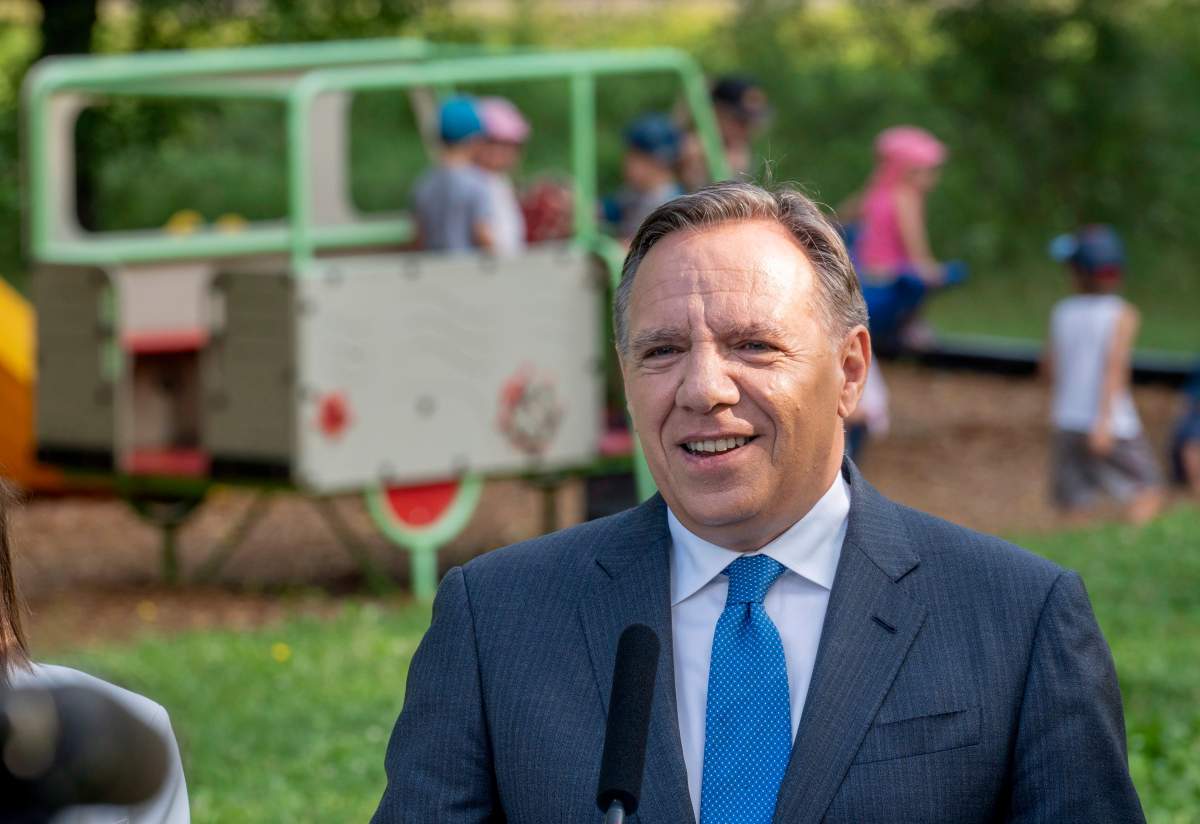With the provincial election campaign in full swing, Quebec party leaders unveiled a slew of promises aimed at wooing parents and families as the first week of school gets underway.

On Monday, Quebec Liberal Party Leader Philippe Couillard took to unveiling a $2.8-billion increase for education over a five-year period if his party is re-elected.
As part of the plan, the Liberals pledged to provide free kindergarten or childcare services for four-year-old kids and promised to implement intensive English classes for Grade 5 and 6 students.
READ MORE: Liberal candidate ruffles feathers after comparing CAQ leader to U.S. President Donald Trump
While the investment would focus largely on young children, the Quebec Liberals also want to raise the age for compulsory schooling from 16 to 18 or until a student acquires a first diploma.
Coalition Avenir Québec Leader François Legault announced on Monday his party would provide additional funding to families seeking to have more than one child.
“The primary goal is to help families,” he said.
In Quebec, the tax credit for the first child is $2,400, with $1,200 for each subsequent child. Under the CAQ, families would get $2,400 for each child they have.
When Legault first touted the idea last year, Couillard called it an outdated proposal. He said it was an idea from another century, when the church urged women to have larger families.

Get daily National news
READ MORE: New Liberal candidate spells the end for Gaétan Barrette as health minister
The Quebec Liberals were quick to slam the promise again, saying the CAQ’s pledge amounted to a “baby bonus.”
“I do not encourage the idea of compensating women for having children,” Couillard said on Monday. “It’s up to them to decide.”
Québec Solidaire on how it would finance expansive social programs
Québec Solidaire, for its part, unveiled about a dozen measures outlining the party’s framework and how it would pay for its hefty promises.
The left-leaning party has pledged big-government programs such as universal dental care, subsidized public transit and free education from daycare through university.
“We’re really feeling we’re a major political force,” Gabriel Nadeau-Dubois, co-spokesperson for Québec Solidaire, told Global News.
READ MORE: ‘English is an official language of Quebec and Canada’ tweets Québec Solidaire
Québec Solidaire also believes it can generate up to $2 billion by increasing the income tax of workers who make more than $97,000 per year and by cleaning up the tax credits Quebecers receive.
Nadeau-Dubois said it also comes down to restructuring spending at the provincial level.
“There is money in the health-care system now that can be spent more wisely if we have better priorities,” he said.
WATCH: Gabriel Nadeau-Dubois joins Global’s Laura Casella to talk about Québec solidaire’s priorities in the upcoming election.

Parti Québécois proposes compensation for carpooling
The Parti Québécois focused on transportation by talking about what leader Jean-François Lisée called the “Tinder of ridesharing” mobile applications.
The goal is to promote carpooling during rush hour in the morning and the evening across the province.
READ MORE: PQ leader not worried about trailing in polls
In the first year of the application, Quebecers who use the service would receive $4 for every trip made during rush hour up to a total of $8 per day from the government. It would be $3 per trip in subsequent years.
“We want a quick explosion of ridesharing,” said Lisée.
The application would allow users to search through existing platforms such as Netlift and Amigo Express.
— With files from Global’s Raquel Fletcher and The Canadian Press








Comments